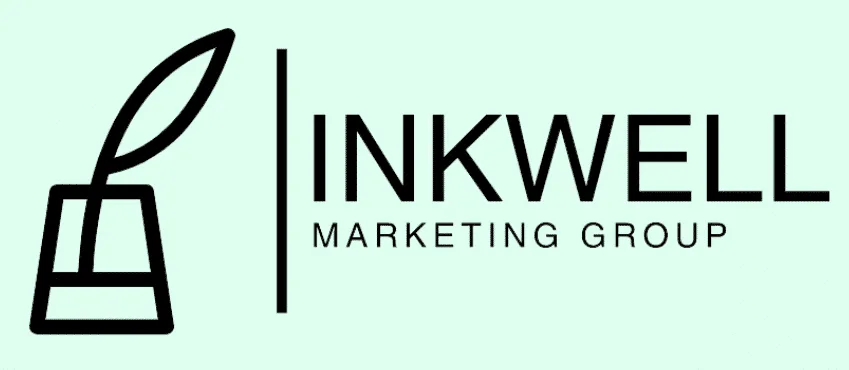
Introduction to Content Marketing Trends for 2025
As we approach 2025, the realm of content marketing is undergoing significant transformations that warrant the attention of businesses eager to maintain a competitive edge. Staying updated with the latest content marketing trends is crucial, as the landscape is not only vast but also continuously evolving. Companies must be agile in their strategies, adapting to the changes that shape consumer behavior and preferences.
One of the most notable trends on the horizon is the ascendancy of video marketing. With the proliferation of social media platforms and the increasing consumption of video content among audiences, brands are discovering new and effective ways to engage potential customers. Video marketing not only facilitates storytelling but also enhances user interaction, making it an indispensable aspect of content strategies moving forward into 2025.
In addition to video content, brand authenticity is becoming paramount. In a digital age where consumers value transparency and genuine connections, businesses must prioritize authentic narratives that resonate with their audience. Building trust through honest and relatable content not only enhances brand loyalty but also helps businesses differentiate themselves in a crowded market.
Moreover, the integration of AI-generated content is revolutionizing the way companies approach content creation. As artificial intelligence technologies advance, they allow for the production of high-quality content at an unprecedented scale and speed. This trend empowers marketers to innovate and optimize their strategies efficiently, aligning content with real-time data and consumer insights.
In summary, the importance of adapting to these content marketing trends in 2025 cannot be overstated. The rise of video marketing, the emphasis on brand authenticity, and the utilization of AI-driven solutions will define the future of content strategy, encouraging businesses to evolve their methodologies to meet the expectations of their audience.
The Rise of Video Content
In recent years, there has been a significant shift in content marketing trends, particularly in the realm of video marketing. As consumers increasingly favor visual content, brands are adapting their strategies to cater to this rising demand. The ability of video to engage audiences effectively has made it a dominant form of communication within digital marketing, making it vital for brands to embrace this evolution.
One of the key reasons behind the soaring popularity of video content is its impact on engagement rates. Research shows that videos can increase engagement rates significantly—by as much as 1200% on social media. This surge can be attributed to the attention-grabbing nature of video, allowing companies to convey their messages in a quick and visually appealing manner. In the fast-paced world of digital content, consumers prefer content that delivers information efficiently, and video serves this purpose exceptionally well.
Furthermore, the rise of short-form video platforms such as TikTok and Instagram Reels has revolutionized how brands approach content marketing. These platforms encourage brief, compelling storytelling, making it easier for companies to connect with younger audiences who are often seeking authentic content. For example, brands like Gymshark have seen enormous success on these platforms by leveraging user-generated content and engaging directly with their community. This approach not only enhances brand authenticity but also showcases genuine user experiences, which resonate well with modern consumers.
Statistics indicate that by 2024, video content is expected to account for 82% of all online traffic. Success stories abound, with companies like Airbnb and Dollar Shave Club utilizing creative video campaigns to captivate audiences and drive conversions. As we look towards the future, particularly in analyzing content marketing trends for 2025, it is clear that brands must invest in video marketing to maintain relevancy and foster authentic connections with their customers. The burgeoning landscape of video content will undoubtedly shape the strategies of brands aiming for success in the ever-competitive digital arena.
Authenticity: Building Trust with Your Audience
As we progress into 2025, the demand for authenticity in marketing is becoming increasingly significant. Today’s consumers are more discerning than ever, seeking brands that not only meet their needs but also resonate with their values. They favor companies that communicate transparently and genuinely. This shift towards authenticity is closely tied to the broader content marketing trends 2025 that place emphasis on human connection and brand storytelling.
Brands can cultivate this desired authenticity through various strategies. Firstly, storytelling is a powerful tool that allows companies to share their mission, vision, and values effectively. By weaving personal anecdotes or customer success stories into their marketing narratives, brands can connect with their audience on an emotional level. For instance, brands like Patagonia have mastered this technique by highlighting their commitment to environmental sustainability, weaving their authentic story into every campaign.
Another effective strategy for fostering authenticity is through user-generated content. Encouraging customers to share their experiences with your products not only showcases genuine opinions but also builds community around your brand. For instance, GoPro leverages user-generated videos to highlight the excitement of their cameras, thus embodying both authenticity and video marketing trends that resonate with their audience.
Additionally, incorporating customer feedback into product development and marketing strategies is vital. By actively listening to and responding to customer insights, brands demonstrate that they value consumer input, further enhancing trust. Companies like Starbucks have successfully implemented this by frequently engaging with their customers through social media, creating a feedback loop that encourages customer interaction.
Ultimately, embracing brand authenticity leads to numerous benefits, such as increased customer loyalty, enhanced brand reputation, and higher engagement rates. As we move forward, brands that prioritize authenticity will thrive in the competitive landscape shaped by evolving content marketing trends 2024 and beyond.
Harnessing AI-Generated Content
The advent of artificial intelligence (AI) has revolutionized the landscape of content marketing, with significant implications for the trends of 2024 and beyond. Marketers are increasingly leveraging AI to streamline content creation processes, enabling businesses to produce a greater volume of material while minimizing resource expenditure. AI content tools facilitate the automation of various tasks, such as generating articles, social media posts, and video scripts, which can free up human resources for more strategic initiatives.
One of the primary opportunities presented by AI-generated content lies in its ability to analyze user data and preferences, allowing brands to tailor their messaging more effectively. For example, Netflix utilizes AI algorithms to recommend content based on user behavior, demonstrating how video marketing can be enhanced through personalized, AI-driven suggestions. Furthermore, AI tools can help monitor trends in real time, enabling brands to stay ahead by adapting their content strategies to emerging preferences.
However, the integration of AI into content marketing poses significant challenges. One major concern is the potential compromise of brand authenticity, as consumers increasingly value genuine connections with brands. Maintaining a human touch in AI-generated content is crucial, as over-reliance on automation can lead to generic outputs, which may fail to resonate with audiences. To combat this, companies should focus on using AI as a complementary tool rather than a complete replacement for human creativity and insight.
Several companies have successfully navigated these challenges, exemplifying best practices in AI content utilization. For instance, the e-commerce brand H&M employs AI-driven recommendations to enhance customer engagement, combining automated insights with human oversight to ensure brand authenticity remains intact. As marketers look ahead to the content marketing trends of 2025, striking the right balance between AI efficiency and human creativity will be essential for sustaining audience connections and delivering impactful results.
Actionable Tips for Adapting to Upcoming Trends
As we look towards the future, businesses must remain agile and responsive to the evolving landscape of content marketing. Embracing innovative strategies will be key to capitalizing on the content marketing trends 2025. Here are several actionable tips to help organizations prepare for these changes.
First and foremost, investing in video marketing should be a top priority. With the continued rise of visual content, integrating high-quality videos into your marketing strategy can significantly enhance engagement. Companies should consider diversifying their video output by exploring live streaming, tutorials, and behind-the-scenes content. Additionally, leveraging short-form videos can cater to the diminishing attention spans of online audiences, tapping into platforms such as TikTok or Instagram Reels.
Another crucial strategy is to harness authentic voices in marketing. Today’s consumers value brand authenticity, and they are more likely to engage with brands that resonate with their values and beliefs. To achieve this, involve users and employees as integral parts of your content strategy by showcasing real testimonials and stories. This approach fosters trust and creates a community around your brand.
Furthermore, leveraging AI content creation tools can streamline and enhance your content production efforts. These technologies can aid in generating insights, optimizing posts for SEO, and personalizing audience interactions. However, it is essential to maintain a balance between automated content and human touch to ensure authenticity remains intact.
Finally, encourage a culture of innovation and flexibility among your content teams. Regularly analyze performance metrics to gauge the effectiveness of content marketing trends 2024, and be prepared to pivot strategies as needed. By staying informed, embracing new technologies, and focusing on genuine connections, brands can thrive in the evolving marketing landscape.
Examples of Brands Leading the Content Marketing Charge
In the rapidly evolving landscape of content marketing, several brands have emerged as pioneers by effectively integrating trends such as video marketing, AI content, and brand authenticity. These companies not only engage their audience but also set benchmarks for success. A notable example is Nike, which has skillfully utilized video content to tell authentic stories that resonate with its target market. Through their “Just Do It” campaign, Nike combined powerful visuals with real-life narratives, allowing consumers to connect emotionally. This strategy not only attracted attention but also increased brand loyalty, illustrating how video content can drive engagement and maintain relevancy.
Another brand at the forefront of these content marketing trends is Starbucks. By leveraging AI content in its marketing strategies, Starbucks has personalized customer experience through tailored promotions and suggestions. The company’s use of data analytics enables them to create unique content that reflects consumer preferences, thereby enhancing brand authenticity. Through this approach, Starbucks has seen a significant boost in customer engagement, proving that integrating AI-driven strategies can lead to tangible results.
Furthermore, the beauty brand Glossier exemplifies authenticity in its marketing approach. They empower their community by featuring user-generated content prominently on their social media platforms, effectively showcasing real customers using their products. This strategy not only fosters relatability but also reinforces trust, a crucial element in developing brand authenticity. Glossier’s impact is evident, as the brand has built a loyal customer base, with engagement metrics that outperform industry standards.
These brands demonstrate that the integration of video marketing, AI content, and a commitment to brand authenticity are essential elements for successful content marketing trends in 2024 and beyond. By analyzing their strategies, other businesses can find inspiration and guidance on how to adapt their own content marketing approaches to keep pace with these emerging trends.
Measuring the Success of Content Marketing Efforts
Measuring the success of content marketing initiatives is essential for understanding their effectiveness and optimizing future strategies. As content marketing trends evolve, particularly with the rise of video marketing and AI content, it is crucial to utilize methodologies that accurately assess performance. Key performance indicators (KPIs) serve as benchmarks that provide insights into audience engagement, brand authenticity, and overall content impact.
First, engagement metrics such as views, shares, and likes play a fundamental role in gauging how well the content resonates with the audience. For video marketing specifically, metrics like watch time, audience retention, and click-through rates offer valuable information regarding viewer interest. Analyzing these metrics helps brands understand the effectiveness of their storytelling and engagement techniques in the context of brand authenticity.
In addition to engagement metrics, conversion rates should also be tracked. These indicators measure how effectively content drives desired actions, whether it’s signing up for a newsletter or making a purchase. With the increasing focus on AI-generated content, it is integral to assess its impact on conversions. Testing different formats and styles can highlight what resonates best with the target audience, ensuring that future content aligns with evolving consumer preferences.
To evaluate content performance effectively, organizations can leverage various tools and frameworks. Google Analytics offers comprehensive tracking of user interactions and can provide insights into video performance. Social media analytics tools also play a significant role in measuring audience interaction with content across platforms. Moreover, customer feedback and surveys can collect qualitative data about brand authenticity and content relevance, further enhancing understanding of what drives success.
Ultimately, by embracing and analyzing these methodologies and KPIs, brands can navigate the shifting landscape of content marketing trends in 2024 and beyond, ensuring their strategies remain effective and authentic.
The Future of Content Marketing Beyond 2025
The landscape of content marketing is rapidly evolving, driven by advancements in technology and shifting consumer behavior. As we look beyond 2025, several emerging trends are likely to redefine content marketing strategies. One significant factor will be the increasing reliance on video marketing, which has proven to capture audience attention effectively. With the proliferation of short-form, engaging video content, marketers will need to prioritize visual storytelling to communicate brand authenticity.
AI content generation is set to play a monumental role in shaping future marketing efforts. As artificial intelligence becomes more sophisticated, the ability to create personalized and relevant content at scale will become paramount. Expect brands to utilize AI not just for automation but to enhance user experience by generating unique content tailored to individual preferences. This technological shift will necessitate a balance between automation and human touch to maintain brand authenticity, a crucial aspect as consumers continue to seek transparency and trustworthiness in brands.
Moreover, evolving regulations surrounding data privacy and content distribution will shape the future of content marketing. Marketers must remain agile and informed about legal developments. With consumers increasingly concerned about their digital footprints, brands will need to adopt strategies that foster trust, including transparent data usage policies and ethical marketing practices.
As we move toward content marketing trends 2024 and beyond, adaptation will be key. Brands should invest in training and resources to ensure their teams are prepared for emerging trends, including leveraging new social media platforms and maintaining a focus on authentic communication. Building robust strategies that incorporate video marketing, AI-driven content, and brand authenticity will remain essential as we venture into an uncertain yet exciting future in content marketing.
Conclusion: Embracing Content Marketing Trends for Growth
As we look forward to the content marketing trends in 2025, it is essential for brands to evolve and adapt to the shifting landscape. The integration of video marketing continues to be a prominent strategy, drawing in audiences with its engaging format and storytelling potential. With consumers increasingly favoring visual content, businesses that prioritize this method are likely to see enhanced engagement and interaction with their target audience.
Furthermore, the rise of AI-driven content offers new opportunities for brands to create personalized and meaningful experiences. AI content generation can streamline processes, ensuring that marketing efforts align with consumer expectations and preferences. By leveraging AI tools, businesses can create high-quality, relevant content more efficiently, enabling them to stay ahead of rivals and meet the demands of their discerning customers.
Brand authenticity remains a vital element in this dynamic environment. As consumers become more aware and critical of marketing practices, establishing genuine connections through transparent storytelling and sincere messaging can significantly boost brand loyalty. Authentic brands that focus on creating trust and relatability will likely outperform those that rely on traditional marketing tactics that may no longer resonate with audiences.
In conclusion, embracing the content marketing trends for 2025 is crucial for brands aspiring to thrive in an increasingly competitive marketplace. Proactive measures and a willingness to adapt will not only foster organic growth but also pave the way for deeper connections with audiences. As we venture into this changing landscape, let us motivate each other to embrace change. The future of content marketing is ripe with opportunities; seize them and innovate relentlessly.

